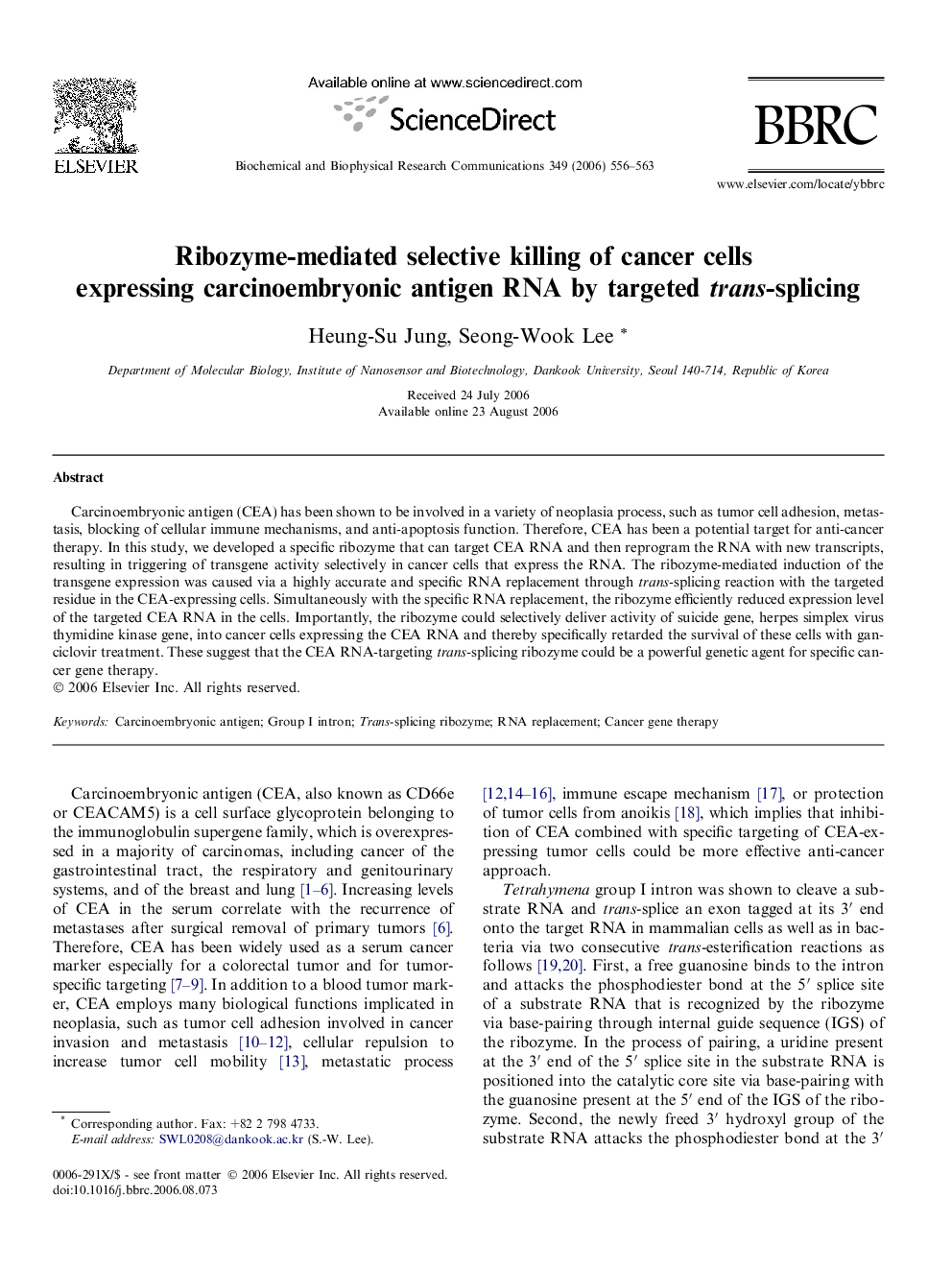| Article ID | Journal | Published Year | Pages | File Type |
|---|---|---|---|---|
| 1938688 | Biochemical and Biophysical Research Communications | 2006 | 8 Pages |
Carcinoembryonic antigen (CEA) has been shown to be involved in a variety of neoplasia process, such as tumor cell adhesion, metastasis, blocking of cellular immune mechanisms, and anti-apoptosis function. Therefore, CEA has been a potential target for anti-cancer therapy. In this study, we developed a specific ribozyme that can target CEA RNA and then reprogram the RNA with new transcripts, resulting in triggering of transgene activity selectively in cancer cells that express the RNA. The ribozyme-mediated induction of the transgene expression was caused via a highly accurate and specific RNA replacement through trans-splicing reaction with the targeted residue in the CEA-expressing cells. Simultaneously with the specific RNA replacement, the ribozyme efficiently reduced expression level of the targeted CEA RNA in the cells. Importantly, the ribozyme could selectively deliver activity of suicide gene, herpes simplex virus thymidine kinase gene, into cancer cells expressing the CEA RNA and thereby specifically retarded the survival of these cells with ganciclovir treatment. These suggest that the CEA RNA-targeting trans-splicing ribozyme could be a powerful genetic agent for specific cancer gene therapy.
